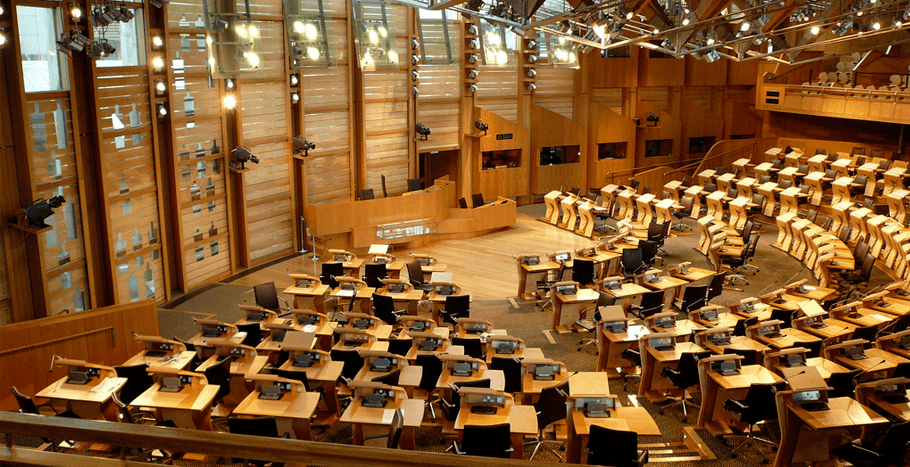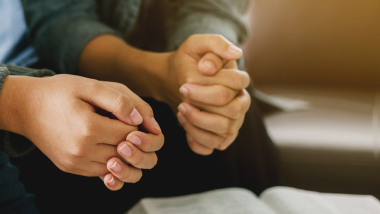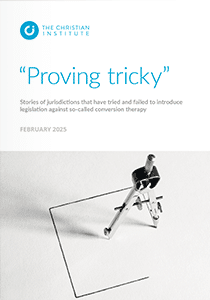MSPs overwhelmingly spoke in favour of a ban on so-called conversion therapy during a Holyrood debate yesterday.
The politicians were debating a report from the Equalities, Human Rights and Civil Justice Committee, which states that ordinary religious practices such as preaching, prayer and pastoral care should only be permitted if conducted in a “non-directive way”.
It also said that any practice to “correct” someone’s gender or sexuality within a religious setting should fall within a ban, and indicated that religious communities be ‘re-educated’ to accept the Committee’s version of LGBT theology.
One-way system
Joe FitzPatrick, convener of the Committee, claimed “there is no conflict in protecting religious freedom and preventing harm by putting a ban in place” and dismissed concerns about the impact on parenting.
He claimed Christian parents would still be able to bring up their children according to biblical values, but only if they didn’t have “the directed intent to change their child’s sexuality, or gender identity”.
FitzPatrick, who has publicly endorsed the End Conversion Therapy Scotland campaign, also said the Committee was backing a one-way system where it would only be permitted to affirm someone’s same-sex attraction or gender dysphoria.
Conflict of rights
Responding to questions, Equalities Minister Christina McKelvie said that an ‘expert group’ set up to examine the issue would include “faith and belief representatives”.
She said she is aware “that there are concerns and that there are potential impacts on religious freedom”, and claimed these would be “considered extremely carefully and sensitively”.
However, like FitzPatrick, she also downplayed any conflict between rights, stating: “we are certain that the advancement of LGBTI rights and protections through ending conversion practices does not mean a regression of religious freedoms”.
Christian teaching
But the SNP’s John Mason did highlight widely-held concerns that the ban would interfere with religious freedom.
Mason, the convener of a cross-party group on freedom of religion or belief, urged Holyrood not to interfere with prayer, “whether that be an individual praying, two people praying together, or prayer in a group setting”.
He also argued that pastoral conversations surrounding sexual orientation or gender identity should not be prohibited. He said: “The Bible teaches that sexual relationships should be within marriage, although there is also teaching against attitudes such as lust. Whereas society and our legal set-up allows multiple sexual relationships, Christian teaching encourages sexual relations with only one person and only within marriage.”
Mason added that churches should continue to be able to discipline a church leader who engages in a sexual relationship outside of marriage by requiring them to step down from their role and repent.They want to criminalise parents and churches who have opinions they don’t like.
‘Lip service’
Other MSPs were accused of paying lip service to religious freedom while pledging to undermine it.
In response to the claim of Scottish Labour’s Pam Duncan-Glancy that the proposals “would seek to create the best environment for religion to remain a positive influence in people’s lives” the Let Us Pray campaign said: “The implication is clear: she wants the Conversion Therapy ban to define what ‘positive religion’ is.”
It also criticised comments made by Maggie Chapman, who said ordinary religious activity should only be permitted if it is “non-judgemental and non-directive”.
A spokesman said: “Calling people to repentance and faith in Christ is often misrepresented as ‘judgmental’. And what is the Bible if not ‘directive’?”
Criminalising parents and churches
The Christian Institute’s Deputy Director, Simon Calvert, called on the Scottish Government to protect the ordinary work of churches.
He said: “It is right to prevent abusive and coercive practices. But there is widespread agreement that the genuinely abusive conversion therapy practices often described – like so-called ‘corrective rape’, electroshock therapy and physical abuse – are already illegal in Scotland.
“It’s clear that some of those pushing for a ban aren’t content to end abusive practices. They want to criminalise parents and churches who have opinions they don’t like.”
Scots Equalities Committee demands ‘conversion therapy’ ban include traditional Christian views
EXCLUSIVE: Conversion therapy letter authors speak out after online attacks
Why the proposed conversion therapy ban is potentially dangerous for the work of churches



